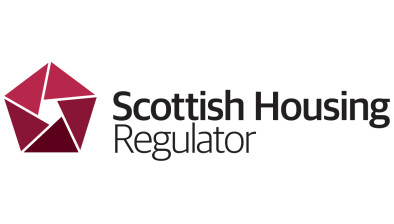RSLs maintaining ‘strong’ financial performance in increasingly challenging environment
 Registered social landlords (RSLs) are continuing to deliver a strong financial performance and the sector is well placed to respond to the challenges ahead, according to a new report from the Scottish Housing Regulator.
Registered social landlords (RSLs) are continuing to deliver a strong financial performance and the sector is well placed to respond to the challenges ahead, according to a new report from the Scottish Housing Regulator.
In its annual analysis of the sector’s finances, the Regulator said RSLs are gearing up to increase the number of new houses that they are planning to build while managing a range of issues such as rent affordability, pension provision and welfare reform.
Highlighting an “increasingly complex and uncertain environment”, the report found evidence of a reduction in financial headroom across the sector, meaning that there is less scope to manage unexpected new or additional costs or lower than expected levels of income. For example around a third of all RSLs have seen interest cover fall by 25% or more. In other words, interest on their loans has increased at a higher rate than the cash generated by their activities. This decline in headroom will continue over the next five years and beyond, the Regulator projected.
“This reflects a sector that is using its assets more intensively in order to invest in its housing stock for both existing and future tenants and should not be seen as a weakening in the financial strength of the sector,” the report said.
The majority of RSLs are also compliant with the Regulatory Standard Number 3 which requires each RSL to manage its resources to ensure its financial well-being and economic effectiveness. The Regulator is engaging with RSLs to determine if there is sufficient evidence to allow it to conclude that the RSL is compliant in a small number of cases.
 Other findings in the report include:
Other findings in the report include:
Ian Brennan, director of regulation (finance & risk), said: “Most RSLs are managing their finances effectively and are responding well to the challenges they face. For example many RSLs have moved their pension provision from defined benefit to defined contribution in order to have greater certainty around future liabilities.
“We anticipate that RSLs will be looking to borrow an additional £1.4 billion during the next five years to fund investment in new and existing housing. This is a much greater rate of increase in borrowing than we have seen previously.
“And our latest analysis demonstrates that there has been a reduction in the financial headroom available. This means that overall, landlords will have less scope when it comes to managing unexpected events. So it is vital for RSLs to continue to manage their finances effectively to safeguard their own credit-worthiness and that of the sector.”
The Regulator’s findings inform its national risk assessment which sets the engagement it will have with each social landlord. Later this week the Regulator will publish the outcome of its risk assessment and its regulation plans.
The Regulator’s analysis of the finances of Registered Social Landlords is available here and more technical analysis can be found here.





